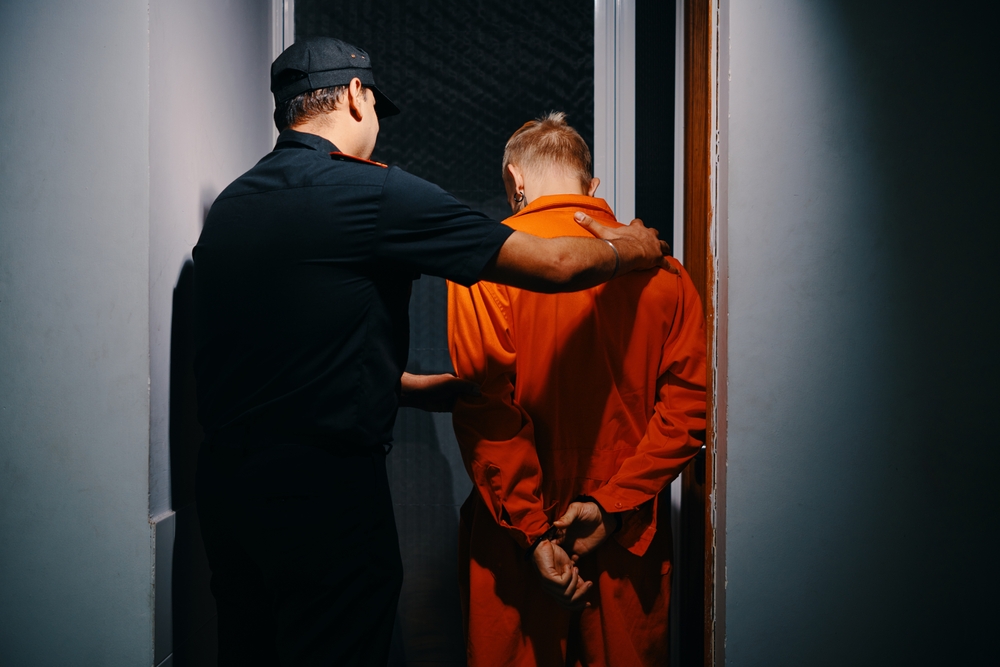Do I Need a Criminal Defense Lawyer If I’m Arrested For a Misdemeanor?

Misdemeanor charges are criminal offenses that are less severe than felonies but still carry significant legal consequences.
While they may not result in lengthy prison sentences, misdemeanor convictions can still lead to fines, probation, and a permanent criminal record, which can have far-reaching impacts on your life.
It’s important to understand the nature of misdemeanor charges and the potential consequences you may face. Even if the charges seem minor, the legal process can be complex, and navigating it without a misdemeanor offense lawyer can be risky. Proper legal representation is crucial to protecting your rights.
What is a Misdemeanor?
 A misdemeanor is a criminal offense that is less serious than a felony. In most cases, misdemeanors are punishable by up to one year in a county or local jail, as opposed to a state or federal prison sentence for a felony conviction.
A misdemeanor is a criminal offense that is less serious than a felony. In most cases, misdemeanors are punishable by up to one year in a county or local jail, as opposed to a state or federal prison sentence for a felony conviction.
Misdemeanors are typically divided into different classes, such as Class A, B, or C, with more serious offenses falling into the higher classes. The specific penalties for a misdemeanor conviction can vary depending on the state and the class of the offense.
The Most Common Misdemeanor Charges
Some of the most common types of misdemeanor charges include:
- Petty Theft or Shoplifting: Stealing items of relatively low value, typically under $1,000.
- Simple Assault or Battery: Causing minor physical harm or threatening violence against another person.
- Disorderly Conduct: Engaging in behavior that disrupts public order, such as public intoxication or disturbing the peace.
- Trespassing: Entering or remaining on private property without permission.
- Driving Under the Influence (DUI): Operating a vehicle while impaired by alcohol or drugs.
- Possession of Small Amounts of Drugs: Possession of a controlled substance, such as marijuana, in quantities deemed for personal use.
- Vandalism: Intentionally damaging or defacing public or private property.
- Prostitution: Engaging in or soliciting sexual acts for money.
The Serious Legal Nature of Misdemeanors
While misdemeanors may seem less serious than felonies, they still carry significant legal consequences that should not be taken lightly. A misdemeanor conviction can result in:
- Jail time: Ranging from a few days to up to one year, depending on the specific offense and jurisdiction.
- Fines: Monetary penalties that can range from a few hundred dollars to several thousand dollars.
- Probation: Court-ordered supervision and restrictions on your behavior, such as regular check-ins with a probation officer.
- A permanent criminal record: A misdemeanor conviction will remain on your record, which can impact your ability to find employment, secure housing, or obtain certain professional licenses.
Common Misconceptions About Misdemeanor Charges
Many people mistakenly believe that misdemeanor charges are not serious and can be easily dismissed or resolved without legal representation. However, this is often not the case. Some common misconceptions include:
- Misdemeanors are “minor” crimes: While misdemeanors are generally less severe than felonies, they can still result in significant legal consequences, including jail time, fines, and a permanent criminal record.
- Misdemeanors can be easily dismissed: Dismissal of misdemeanor charges is not guaranteed and often requires the assistance of an experienced criminal defense lawyer.
- You don’t need a lawyer for a misdemeanor: Navigating the legal system and building an effective defense strategy for a misdemeanor charge can be complex, and having an experienced criminal defense lawyer can greatly improve your chances of a favorable outcome.
The Importance of Legal Representation
Regardless of the perceived severity of a misdemeanor charge, it’s crucial to take it seriously and seek the guidance of a qualified criminal defense lawyer.
An attorney can help you understand your rights, the legal process, and the potential consequences you may face. They can also develop a strategic defense to protect your interests and minimize the impact of the charges on your life.
Benefits of Hiring a Criminal Defense Lawyer
Hiring a criminal defense lawyer for a misdemeanor charge can provide you with several key benefits, including:
- In-Depth Legal Experience: Criminal defense lawyers have in-depth knowledge of the legal system, court procedures, and effective defense strategies. They can navigate the complexities of your case and advocate for your best interests.
- Negotiation and Plea Bargaining: Experienced lawyers can often negotiate with the prosecution to potentially reduce the charges or secure a more favorable plea bargain, which can minimize the consequences you face.
- Representation in Court: If your case goes to trial, a criminal defense lawyer can represent you in court, cross-examine witnesses, and present a strong defense on your behalf.
- Protection of Your Rights: A skilled lawyer can ensure that your constitutional rights are protected throughout the legal process and that any evidence or procedures that violate your rights are challenged.
- Reduced Penalties: With the help of a criminal defense lawyer, you may be able to avoid or reduce the potential penalties, such as jail time, fines, or a permanent criminal record.
Factors to Consider Before Hiring a Criminal Defense Lawyer
When deciding whether to hire a criminal defense lawyer for a misdemeanor charge, consider the following factors:
- Severity of the Charges: The more serious the misdemeanor charge, the more important it is to have legal representation. Charges like DUI, assault, or theft may require the help of an experienced lawyer.
- Potential Consequences: Evaluate the potential penalties you may face, such as jail time, fines, or a criminal record, and determine if the risks warrant hiring a lawyer.
- Your Personal Circumstances: Consider how a misdemeanor conviction could impact your employment, housing, or other aspects of your life, and whether the investment in a lawyer is worthwhile.
- Your Legal Knowledge and Confidence: If you feel overwhelmed by the legal process or lack confidence in your ability to effectively represent yourself, hiring a lawyer can be highly beneficial.
How to Find the Right Criminal Defense Lawyer
When searching for a criminal defense lawyer, consider the following tips:
- Ask for Referrals: Reach out to friends, family members, or other professionals who have had experience with criminal defense lawyers and ask for recommendations.
- Check Credentials and Experience: Look for lawyers who are well-versed in criminal defense, have a proven track record of successful cases, and are licensed to practice in your state.
- Schedule Consultations: Meet with several lawyers to discuss your case, understand their approach, and determine if you feel comfortable working with them.
- Consider Communication and Responsiveness: Choose a lawyer who is accessible, responsive to your questions, and keeps you informed throughout the legal process.
- Evaluate Fees and Payment Options: Understand the lawyer’s fees, payment structure, and any additional costs associated with your case.
What to Expect During the Legal Process and the Prosecution
When facing a misdemeanor charge, the legal process can be complex and intimidating. Your criminal defense lawyer will guide you through the following steps:
- Arraignment: This is the initial court appearance where you will be informed of the charges against you and have the opportunity to enter a plea.
- Pretrial Negotiations: Your lawyer will negotiate with the prosecutor to potentially reduce the charges or secure a more favorable plea bargain.
- Discovery Process: Your lawyer will gather and review all the evidence and information related to your case.
- Motions and Hearings: Your lawyer may file various motions and participate in hearings to challenge the evidence or argue for the dismissal of the charges.
- Trial: If a plea bargain cannot be reached, your case may go to trial, where your lawyer will present your defense and cross-examine the prosecution’s witnesses.
Throughout this process, your criminal defense lawyer will work diligently to protect your rights, build a strong defense strategy, and achieve the best possible outcome for your case.
Our Strategy for Building an Aggressive Legal Defense
At Rodriguez Law Group, we understand the gravity of misdemeanor charges and the significant impact they can have on your life. Our team of experienced criminal defense lawyers is committed to providing you with the highest level of legal representation.
Our strategy for building an aggressive legal defense includes:
- Thorough Case Evaluation: We will carefully review the details of your case, the evidence against you, and the potential legal options available.
- Personalized Defense Strategy: Based on the unique circumstances of your case, we will develop a tailored defense strategy that addresses the specific charges and challenges you face.
- Vigorous Negotiations: Our lawyers will engage in extensive negotiations with the prosecution to potentially reduce the charges or secure a more favorable plea bargain.
- Meticulous Preparation: If your case goes to trial, we will meticulously prepare by conducting thorough research, gathering evidence, and developing a compelling courtroom strategy.
- Aggressive Representation: In the courtroom, our lawyers will aggressively defend your rights, challenge the prosecution’s evidence, and present a strong case on your behalf.
Why You Should Avoid Self-Legal Representation
While it may be tempting to try to handle a misdemeanor charge on your own, it is generally not advisable to do so. The legal system can be complex and navigating it without proper legal representation can put you at a significant disadvantage.
Some of the key reasons why you should avoid self-legal representation include:
- Lack of Legal Experience: Without a deep understanding of criminal law, court procedures, and effective defense strategies, you may make mistakes that could jeopardize your case.
- Difficulty Negotiating with Prosecutors: Experienced criminal defense lawyers often have established relationships with prosecutors and can negotiate more effectively on your behalf.
- Inability to Properly Defend Yourself: Representing yourself in court can be challenging, as you may struggle to effectively cross-examine witnesses, present evidence, and make persuasive arguments.
- Increased Risk of Unfavorable Outcomes: Without proper legal representation, you may face a higher likelihood of receiving harsher penalties, such as jail time, fines, or a permanent criminal record.
The Prosecution’s Most Common Offensive Tactics During Misdemeanors
 When facing a misdemeanor charge, it’s important to be aware of the tactics that the prosecution may use to try to secure a conviction. Some of the most common offensive tactics employed by prosecutors include:
When facing a misdemeanor charge, it’s important to be aware of the tactics that the prosecution may use to try to secure a conviction. Some of the most common offensive tactics employed by prosecutors include:
- Overcharging: Prosecutors may attempt to charge you with a more serious offense than the circumstances warrant, in an effort to pressure you into accepting a plea bargain.
- Presenting Incomplete or Circumstantial Evidence: The prosecution may rely on evidence that is incomplete or circumstantial, hoping to create a sense of doubt or uncertainty in the minds of the judge or jury.
- Attacking Your Character: Prosecutors may try to discredit you or your witnesses by attacking your character or personal history, even if it is not directly relevant to the case.
- Offering Tempting Plea Bargains: The prosecution may offer a plea bargain that seems like a good deal, but could still result in a criminal record and other consequences.
- Delaying the Legal Process: Prosecutors may use various tactics to prolong the legal process, such as requesting continuances or challenging motions, in an effort to wear you down and make you more likely to accept a plea bargain.
Your Legal Options After a Misdemeanor
If you have been charged with a misdemeanor, it’s important to understand your legal options and the potential consequences of each. Some of the most common outcomes in a misdemeanor case include:
- Dismissal: If your attorney is able to present a strong defense or negotiate with the prosecution, your case may be dismissed, and you will have no criminal record.
- Deferred Adjudication: In some cases, you may be eligible for a deferred adjudication, where the court defers the final judgment of your case for a specified period of time. If you successfully complete the terms of the deferred adjudication, the charges may be dismissed, and you may avoid a permanent criminal record.
- Plea Bargain: Your attorney may be able to negotiate a plea bargain with the prosecution, which could result in reduced charges, alternative sentencing, or a more favorable outcome.
- Conviction: If your case goes to trial and you are found guilty, you may face a range of penalties, including jail time, fines, probation, or a combination of these.
It’s important to work closely with your criminal defense lawyer to understand your options and develop a strategy that best protects your rights and interests.
Contact Us for a Free Consultation
If you or a loved one has been charged with a misdemeanor, don’t risk your future by trying to navigate the legal system alone.
Contact The Rodriguez Law Group Los Angeles Criminal Defense Attorneys today for a free consultation with one of our experienced criminal defense attorneys. We are committed to providing you with the aggressive legal representation you need to protect your rights and achieve the best possible outcome for your case.


